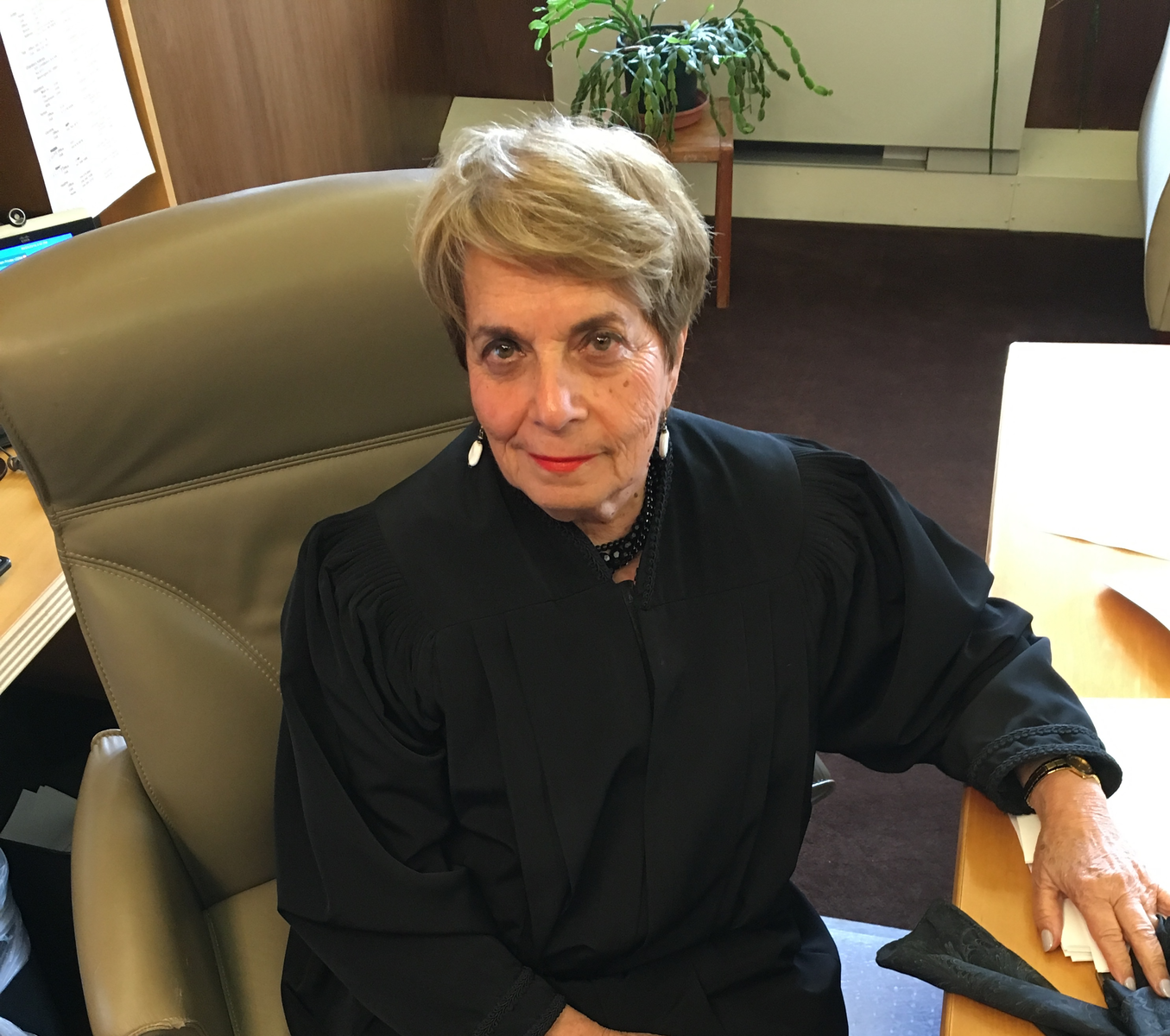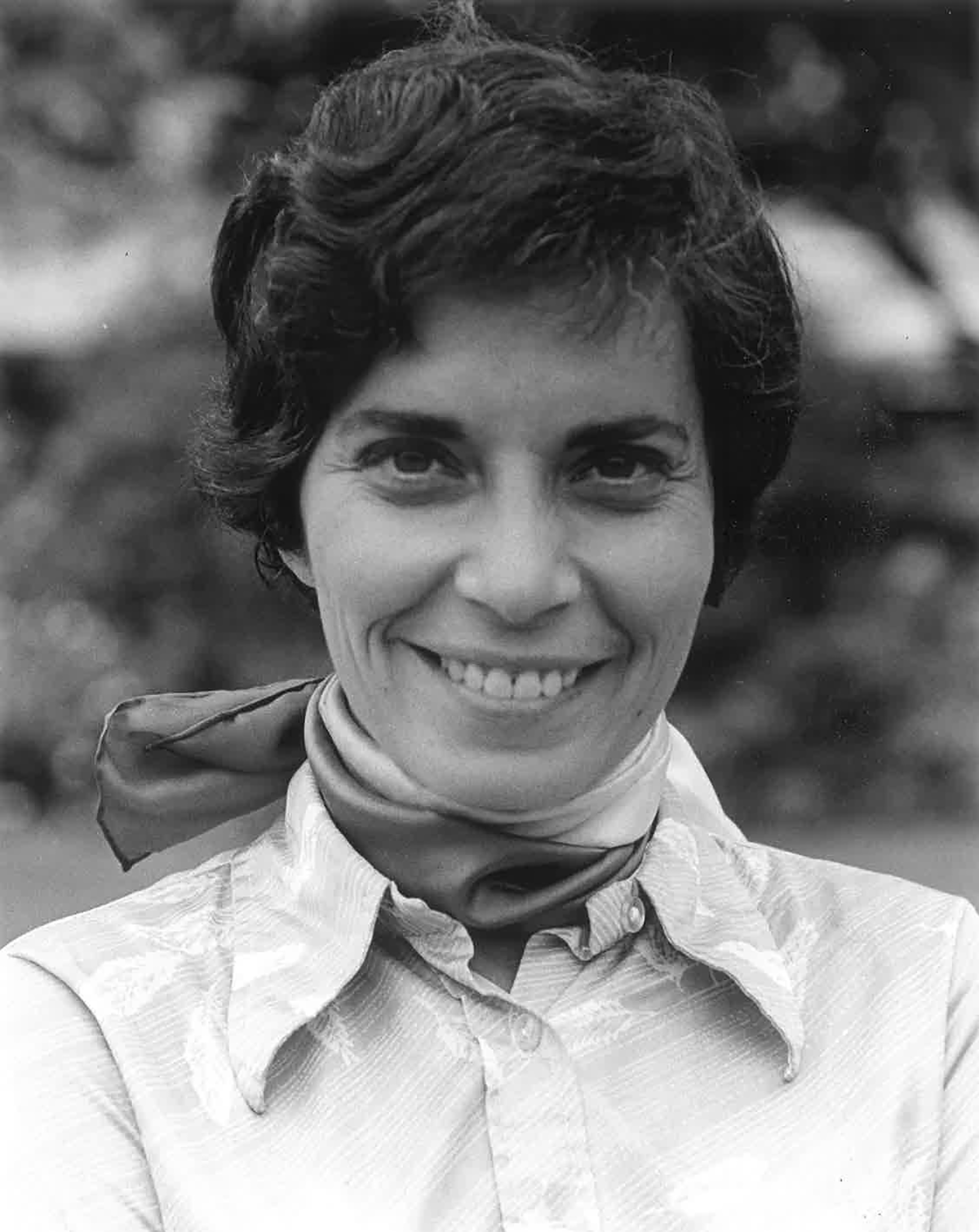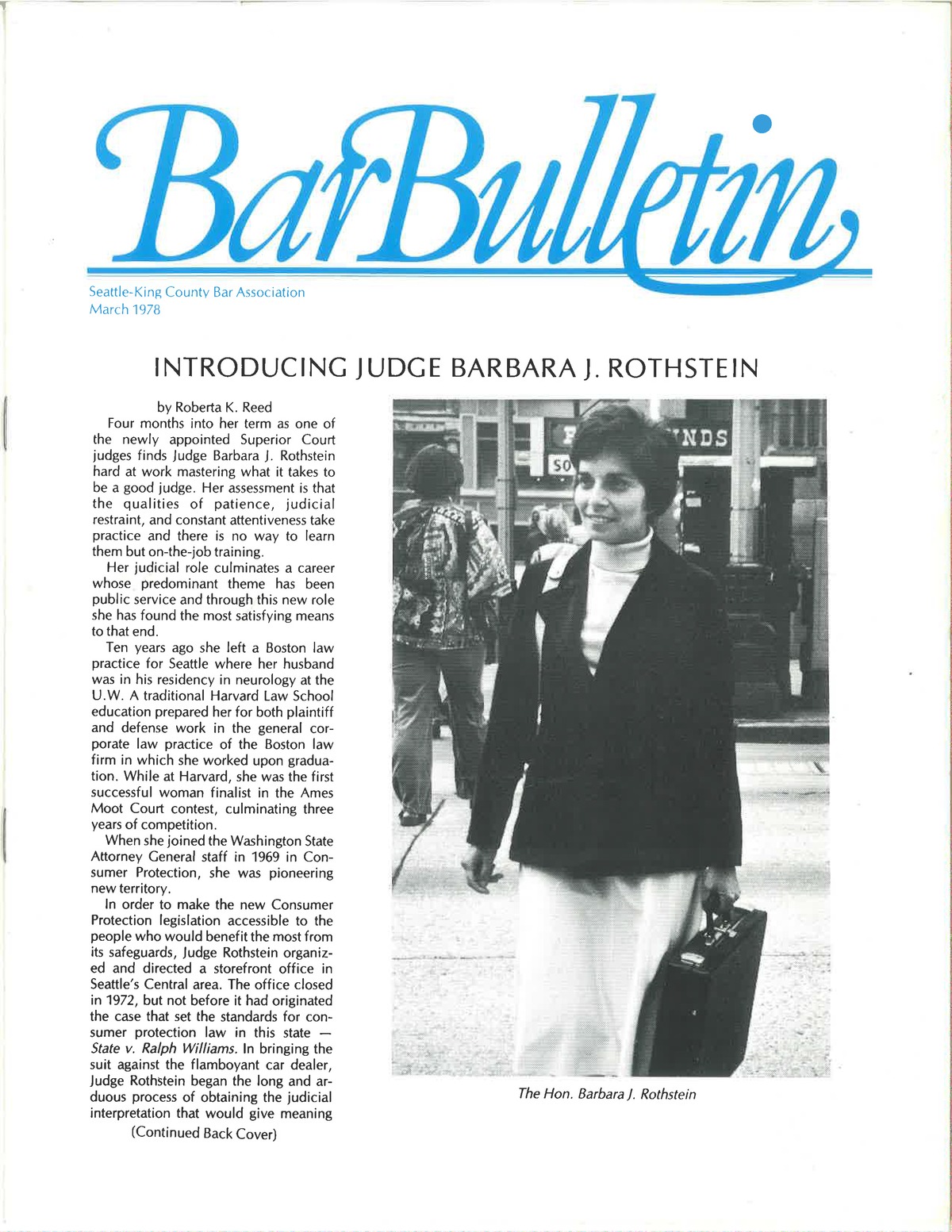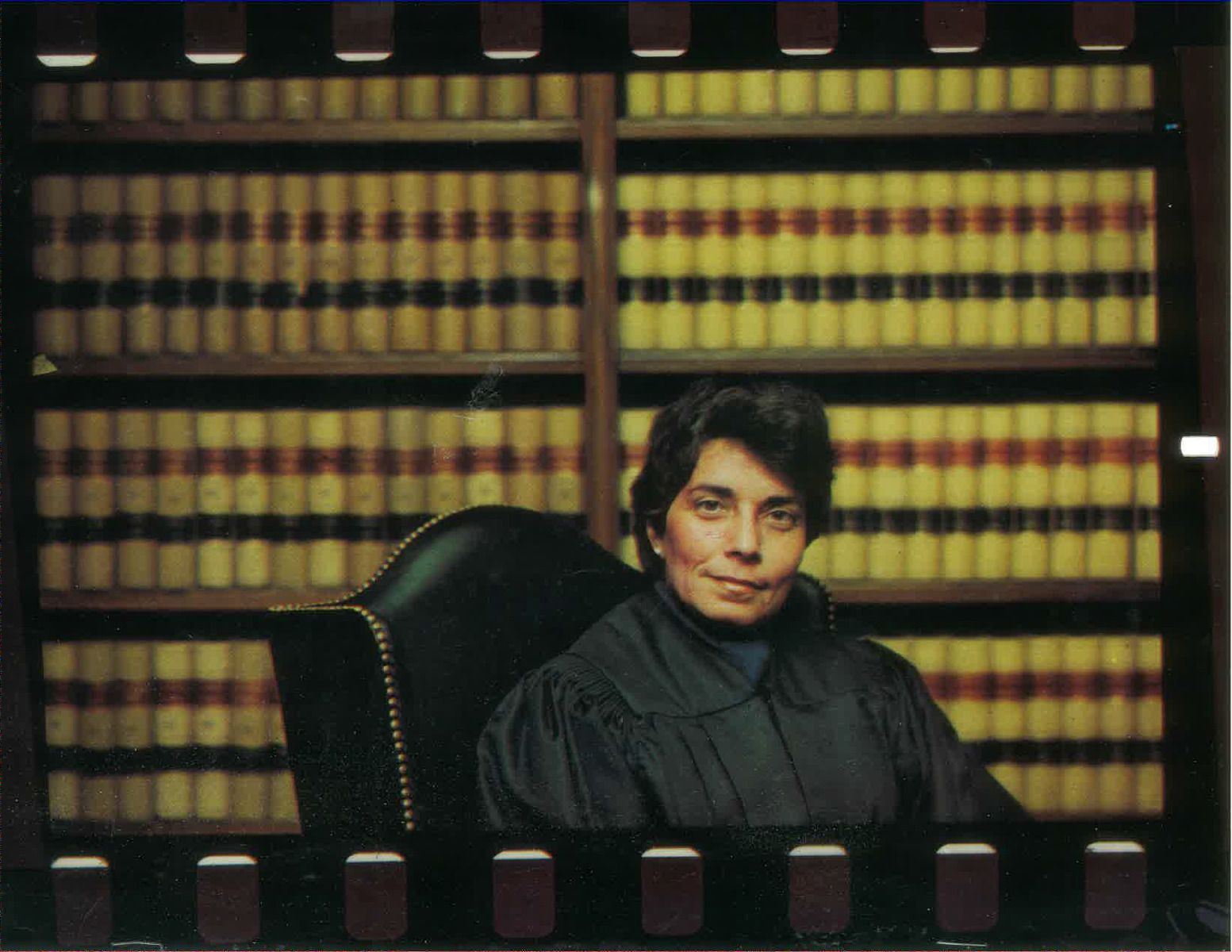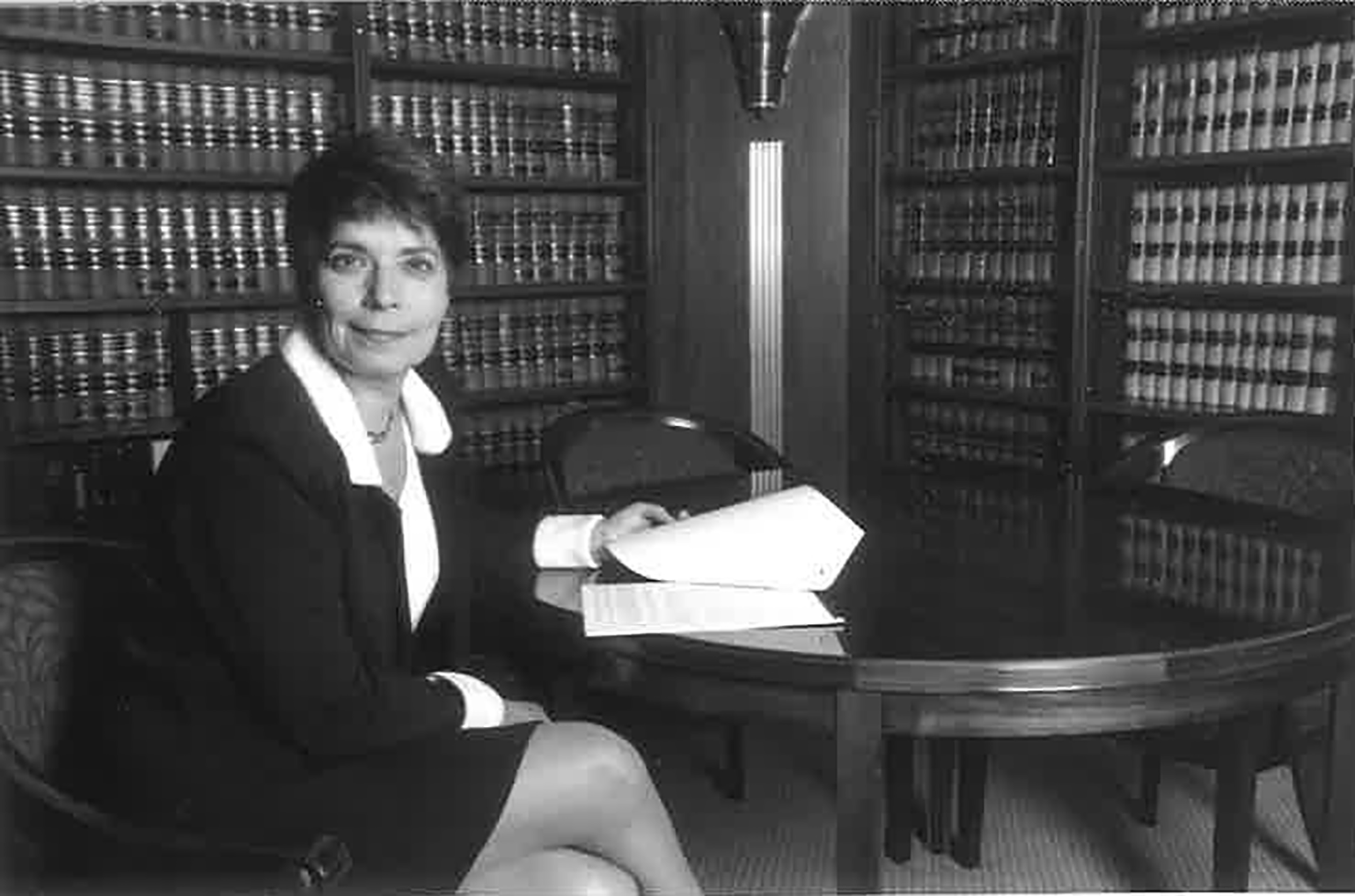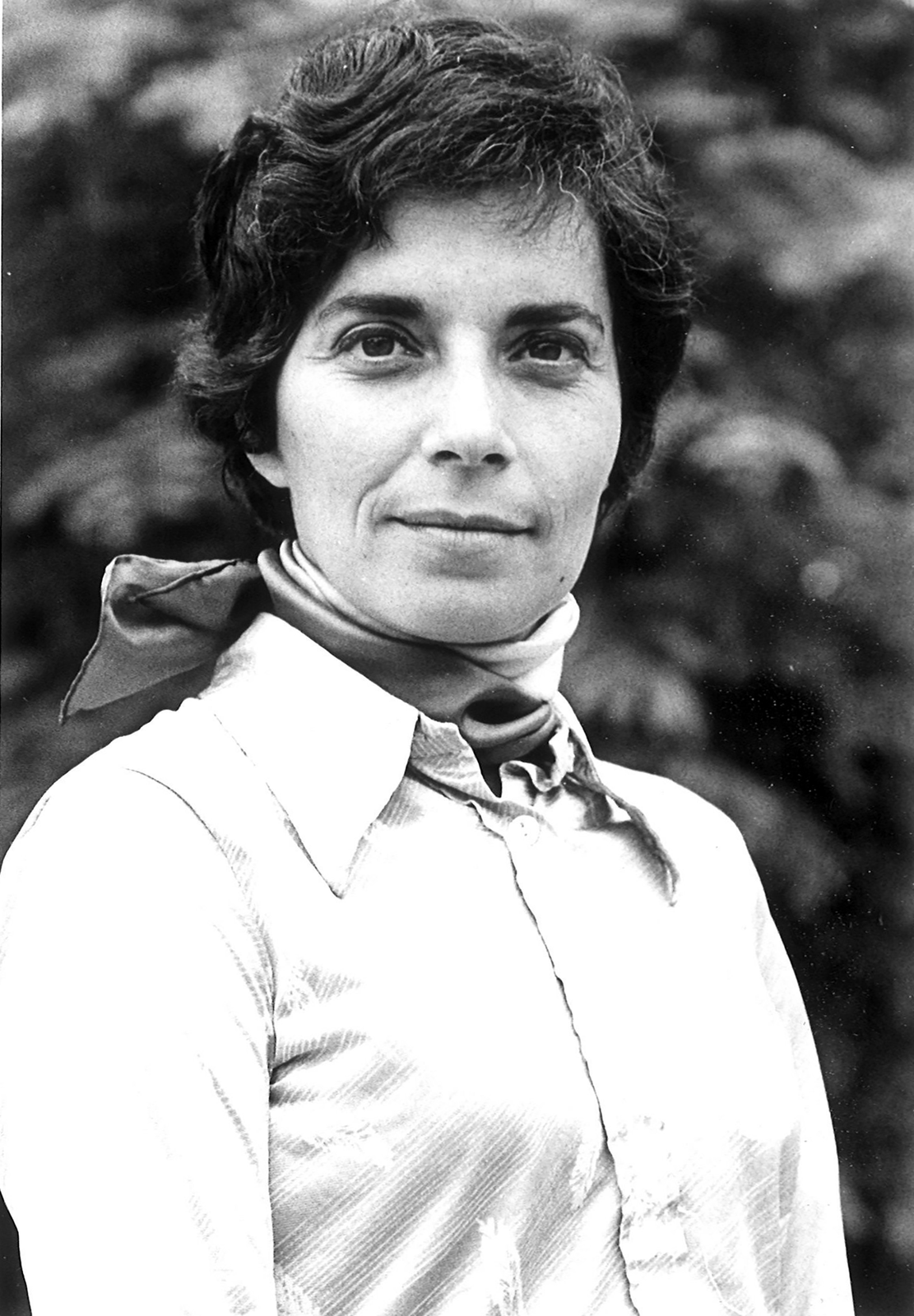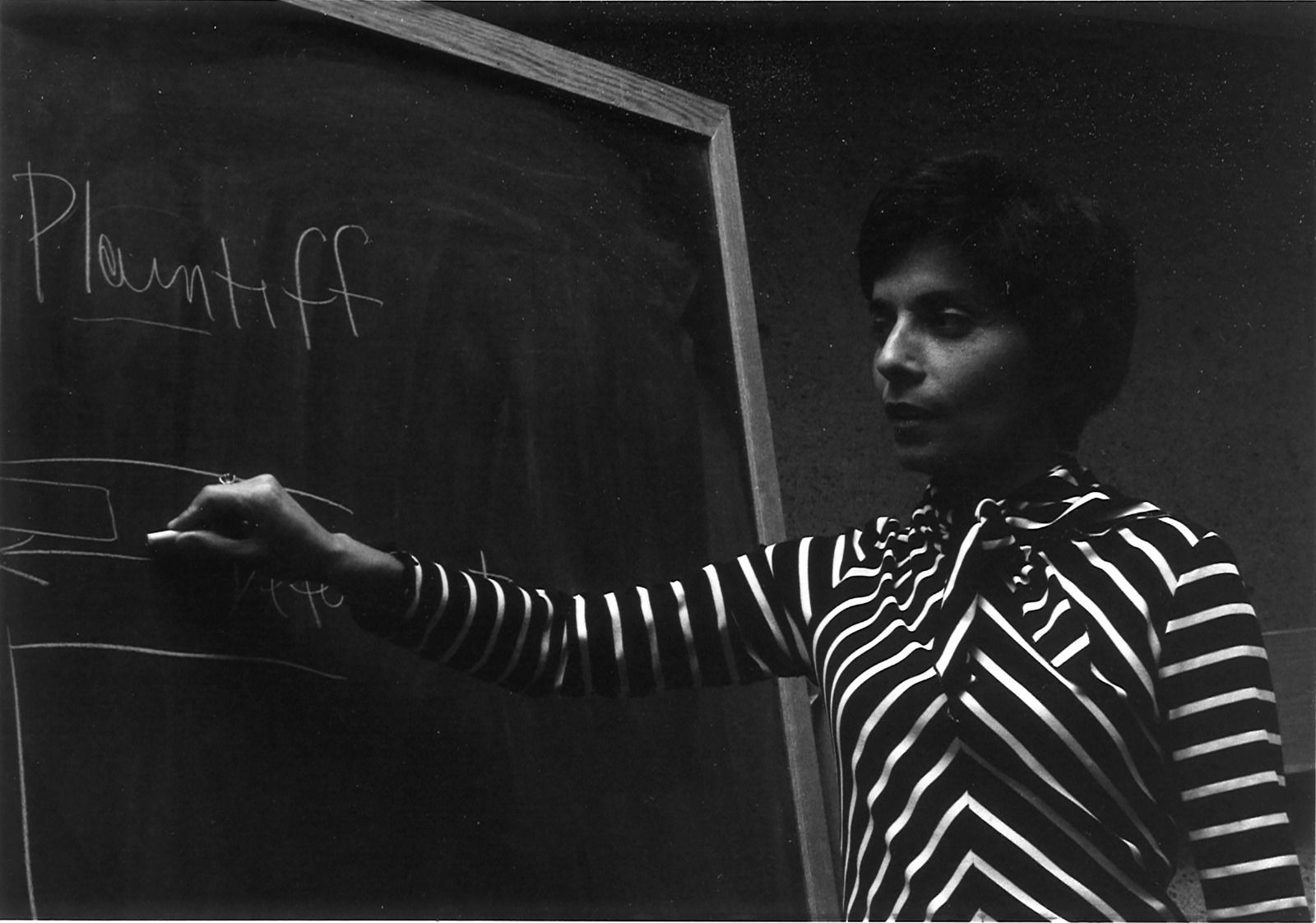My grandparents were the first to come to America, and both of my parents were born here. As to where they came from, it depends on who owned the land at the time. It was either Russia or Poland, and I never did get a straight answer as to which it was at the time my grandparents came. Their life before America was not the kind of experience they wanted to talk about. They came from a place that had pogroms and they lived in a shtetl and it wasn’t a great experience, so, it wasn’t like they said, “Gee, when you get old enough, we oughta go back and visit.” I think they wanted to forget it as much as they could. So when we asked about it, we really never got much of an answer.
I had always been interested in the idea of helping people. It was sort of in my family: my father was a physician who was dedicated to helping all people—people who could pay, people who couldn’t pay. I grew up in a family and went to a school where there was a strong idea imparted that giving back to and helping the community was a very important part of our lives. I picked that up from my teachers as well as my family. I was very fortunate to have had excellent teachers. I went to a Brooklyn public high school and I think just the fact that these people were teaching in a Brooklyn public high school says a lot about them and their values. I chose to pursue the law after I had been out of college for about three years, exploring a number of things that sounded interesting to me. I had occasion to sit in on some courses at Harvard Law School that a friend urged me to audit. And I really, really liked them. I liked the way of thinking, the challenge of it, and it fit with a lot of other things that I wanted to do related to public service. I had thought about law school while I was in college, but I wasn’t prepared to make the commitment to go back to school for another three years. I wanted to explore a bunch of other things and, after doing all that exploring, I realized law was what I wanted to do.
The role of Judaism in her life
My parents weren’t observant, but I do think that a lot of what I’m talking about relates to Jewish values that are imparted as part of the religion, even though we weren’t religious. I think there’s no question that I internalized the values I got from being Jewish, especially those that help you have a sense of community and an obligation to give back to that community. And that community involves everybody, including people less fortunate than you. Again, these are the values I got in school, where my teachers were predominately Jewish. So, no, we weren’t an observant family, though my grandparents were. My own immediate family wasn’t, but they were culturally Jewish. I think the values that permeate the religion, at least as I learned them, were centered around caring about people less fortunate than yourself. And, to be idealistic about it, these Jewish values coincided with a lot of the American values I was learning in school. These are our values, not just as Jews but as Americans. They coincide, and so that’s had a very strong influence on me.
There were very few of us. Very few. The dean treated it as an anomaly. He had strong feelings that the positions taken by women at the law school were wasted, and he was not afraid to tell us so. But, I don’t take offense easily, so if people were offended at my being there, I could not have cared less. There’s no question that some of the faculty made women feel unwelcome. The original Paper Chase guy [Professor Clark Byse] would have a “Ladies Day” on which he only called on women. We just let it roll off our backs like water over the dam. Some people welcomed us, some people did not. As I say, the dean made it very clear that he thought we were taking up positions that would be better filled by a man. But in the end, I enjoyed three years and didn’t really pay attention to the fact that I had stepped into a world that wasn’t used to women... until it came time to try to get a job. Then, for the first time, I stopped being oblivious and I realized, “Uh oh! Wait a minute, wait a minute! Why is this so difficult?”
I wasn’t involved in the women’s movement itself, but I benefited greatly from it. It was because that movement was going on that I got to be a judge, for instance. There was a concerted effort to get more women on the bench, especially as a federal judge. There were so few women on the federal bench at that time, I mean really, really, very few. President Carter said he was going to increase the number of women on the bench and, for the first time, there were groups of women that were in a position to push forward women candidates. So I benefited from that. The Washington Women Lawyers came to me and said, “You know, Carter wants to appoint women to the bench, and we need the names of qualified women. Could we put your name in?” I was on the state court at the time, and I said, “Well, uh…” So, I benefited from the women’s movement. I, myself, was not involved, but I don’t think the things that happened to me could’ve happened unless this was all going on at the time.
I was working at a small law firm in Boston that’s no longer in existence, about a 25-person firm, and I was their first female attorney. The other attorneys at the firm were very welcoming and it was a good experience. I was there for two or three years, until I met my husband and moved to Seattle from Boston. My husband was doing his residency at the University of Washington, and I followed him west and I think deep down inside I thought, “Oh, he’s going to finish his residency and then we’ll go back to Boston, where all my friends are.” But I hadn’t lived in Seattle more than a few weeks before I knew that we weren’t going back because I loved it and he loved it. We stayed for 35 years.
In the State Attorney General's Office
Working in the Attorney General’s office was wonderful, it really was. I was in a situation where I was doing good things for people who need representation. I wanted to bring lawsuits on behalf of people who really were unsophisticated consumers. We had a storefront office in the Central Area and I organized a lot of educational programs where we’d go out into the community and talk to people in various places to find out who were the predators that were taking advantage of people. We were dealing with people who had little education, they certainly couldn't read a contract, and they had poor credit, so there's only a limited number of places they could shop. They were sitting ducks for the sleazebags of commerce. And that’s where I wanted to be. I set up this office with people who wanted to do just what I was doing. We didn’t want to be in an office downtown that would intimidate people and discourage them from coming. So, a storefront office in the Central Area was perfect, and it gave rise to some very important and interesting cases. Plus, it helped us to represent people and help them in situations where they needed help. They were really underdogs.
I think the most memorable case I tried as an Assistant Attorney General was The State of Washington v. Ralph Williams, which was a seminal case for consumer protection in Washington. It went all the way to the Supreme Court. Oh, goodness, that’s bringing back all kinds of memories. The Defendant was a very predatory car dealer who did things that would take days to describe. It was a great, satisfying case in the long run. Not that the people ever got their money back, but we made good law and drove him out of business. So, financially, we didn’t help people, but people learned a lot, and what’s more important is we were representing people who never got into court, because nobody would represent them. They had no money. And, for the first time, they experienced the fact that the court system was there to help them. We had witnesses come who were terrified to come in. When they took the stand they were literally shaking because they had never been in a courtroom. But, they told their stories and they got treated with dignity by the judge who heard the case. And it was a wonderful experience for them, and for their families, that people cared enough—that the system cared enough—to listen to them. It was just a good experience all around.
Going into court in King County at that time (we’re talking about the late ‘60s, early ‘70s), there were virtually no women trial attorneys. So when I went into court, I was often treated, let’s say, shabbily. I certainly wasn’t welcome. I was an oddball. Not only was I a woman, but I was an out-of-stater, and I hadn’t gone to the UW Law School. I had a lot of strikes against me. The way many of the judges behaved…I can remember my husband watching one day when one of the judges was particularly unfriendly. And my husband said, “You know, you could do so much of a better job than that guy’s doing. You’d never treat anybody that way in your courtroom.” And it was experiences like that that made me think, “That’s true. I would be a good judge in that regard.” And then I got calls from the one or two female judges who were on the bench saying, “Please, we need more women on the state bench.” Dixie Lee Ray was the governor at the time, and she was a Democrat and had a Democratic legislature. They created five new judicial appointments, anticipating that Dixie would appoint them. They were all Democrats, and Slade Gorton, who was the Attorney General at the time, and a Republican, issued an opinion saying, “No. These shouldn’t be appointed, these should be elected.” So those of us who were interested went, “Oh, now what do we do?” We had to run. So, for two months, I ran for office. You know, my picture was on buses—it was really an amazing experience. And then, a few days before the primary, the Supreme Court came out and said, “No, no, they’re appointed.” You could write a book about it! I had a garage full of things I was going to hand out. It was really fun. Anyway, so I met Dixie Lee Ray, to make it short, and she appointed me. That’s how I got on the state bench. And I loved being on the state court, it was a great experience.
Having opinions overturned by SCOTUS
It doesn’t bother me, but some judges feel strongly about it. You know, there are more of them [Supreme Court justices] than there are of me. And they have more law clerks and more time. You’re not going to get reversed on a run-of-the-mill case, because you can always get a run-of-the-mill case right. The cases you stand to get reversed on are the difficult cases. You’re looking at a contract, or a statute, and you’re interpreting it. It wouldn’t be there if there weren’t two ways to look at it, right? And you, based on precedent and everything you can bring to bear, make a call about the way you see it. You did the best you can, and then it goes on. And if other people see it differently, as long as you’ve thought about it and done your best and written a well-reasoned decision, if the Justices see it differently, that’s fair game. That’s how the law’s made. The trial court gets the first shot at it, you do the best you can, and then it goes from there. It’s not personal. Of course I’d rather be affirmed than reversed, but there’s another thing that happens: years go by before you get the decision. Usually, by then, you’ve had hundreds of other cases and you’ve completely forgotten it. Most cases, even the difficult ones, they’re gone, you know? You’ve had a hundred cases since then. That’s my attitude. Now, I’m not saying all judges feel that way. But, you know, I am the one you asked.
Take the flag-burning case [where she found the First Amendment protected a citizen’s right to burn the American flag]. I got hate mail, but I also got complimentary mail. People feel strongly about it on both sides. The people who wrote me hate mail do not understand how anyone could say it’s okay to burn the flag. They made a point and brought up the fact that they had fought for the armed forces or they had friends who died for the flag. They’re not concerned about the law. What do they care about the First Amendment? This is an issue, and there are two sides to the issue. But that’s not the way judges deal with it; at least you’d hope that’s not the way judges deal with it. Judges deal with precedents, and the law. Courts are not meant to make social change. We have a legislature to do that. Now, that doesn’t mean that some of our decisions don’t effectuate change. There are some decisions that will effectuate big social change. But that isn’t the motivation of making the decision, and I think that was the crux of your question: Should we be doing this consciously? We’re limited, and we should be limited, because we’re not elected.
On the politicization of the courts
They’ve been politicized for a very long time. In fact, I suppose if you go back to FDR, they’ve always been politicized, as far back as my lifetime would go. Every president has an idea of what makes the ideal justice, right? And a lot of it has to do with who the president is and what he or she believes—he believes, no “she” yet. I personally would prefer that middle-of-the-road people be appointed by both sides. I think, because of the nature of the court, that when people get extreme in their views it makes it difficult. But the caliber of the federal judiciary has always been high. I’ve known so many judges from when I was the director of the Federal Judicial Center, and they really are terrific people. They’re working very hard to try to do the right things. Some are more brilliant than others, but they’re all earnestly trying to make the right decision. That’s what you hope for, that once the person puts the robe on, they really just look at the cases and do the right thing.
A federal judge often decides cases that make a huge difference to the region in which she sits, as well as the nation. I've mentioned my decision striking as unconstitutional the federal statute making it a crime to burn the flag. I also ruled in favor of listing the marbled murrelet, a bird that nests in old growth forests, as an endangered species. The decision not only protected this endangered bird, but also thousands of acres of old growth forest that was necessary habitat for its existence. In another environmentally focused case, which involved the Army Corps of Engineers and Elliott Bay, the court ruled that the Corps' plan for disposing of toxic waste in Elliott Bay had been insufficiently tested so as to establish its safety. The Indian fishing case is an ongoing controversy between the Indian tribes and the State of Washington, sports and commercial fisherman, and other parties. The court's constant role is to rule on the rights of the various parties to participate in salmon and other Pacific fisheries. The case is especially important given the diminishing population of the Pacific fishery. There is also the Olympic Pipeline case. Three children were killed in a tragic rupture in the Olympic Pipeline in Bellingham, WA. So, I ordered the creation of the Pipeline Safety Trust. The Trust was formed in 2003 with funds set aside to establish a permanent, independent pipeline safety watchdog group. Since its founding in 2003, the Trust has regularly testified before Congress on pipeline safety issues, educated local governments and individuals with concerns about the safety of pipelines in their communities, and worked closely with industry, regulators, and the public to improve pipeline safety regulations and their effectiveness. These are just some of the far-reaching cases I've tried throughout my career.
I hope I play a role in mentoring them. I want them to remember the time when they were asked to help me do the right thing. It’s the one time in their careers when they’re not representing either side, they’re just looking for the right thing to do. They, like me, are impartial. I want them to treasure that experience, because when they go on to represent one side or the other as a lawyer, they’re dedicated to advancing a side. I think they need to remember that, so that if ethical questions come up in the future, they can remember that there really is the right way to handle something. That doesn’t mean that they won’t be great advocates, and they should be zealous. But there will be limits to how far they will go. I never want them to mislead a court. There’s a difference between being a zealous advocate and misleading a court. I don’t want my law clerks to ever do that to some poor judge. What else? I want them to recognize the complexity of issues. It’s rare that the tough issues are easily answered right or wrong. There are often merits on both sides, and you can’t just discount people who think differently from you as stupid or uncaring. You have to stop and think of where they’re coming from and what their beliefs are, and what made them believe the way they do. That doesn’t mean that you have to agree that they’re right, but you should at least be able to recognize where they’re coming from. That’s why I believe that what’s happening, in many regards, in our country is so sad. You know, you can’t paint the other side that differs from you as being evil or bad or stupid. You have to see that these are very complex issues. Religion plays a part, and your upbringing plays a part in which side you come out on for some of these things. I think I would want them to be able to see that, but I’m not sure I’m the one who gives them that ability. Many of them come that way beforehand. Maybe I select them that way, I don’t know. It may be pre-selection as much as my mentoring. But if I have anything to do with it, I’d like that to be a takeaway.
If you asked me that question 30 or 40 years ago, I would have said, “When I reach senior status, after I’d been on the bench all these years, I’m going to have a second or a third career. I have all these things I want to do.” Well, the answer is that, now that it’s come to that, I really just want to continue being a judge. And I know that shows a paucity of imagination, that I can’t think of anything else that I'd rather do. I love being a judge. I do love it. And being a senior judge, I get to choose my calendar, so I can cut out those things that I don’t like, and concentrate on the kinds of cases I do. So, I’m perfectly happy to continue, and I’d like to continue as long as I think I’m making a contribution.

